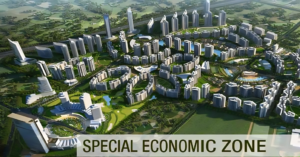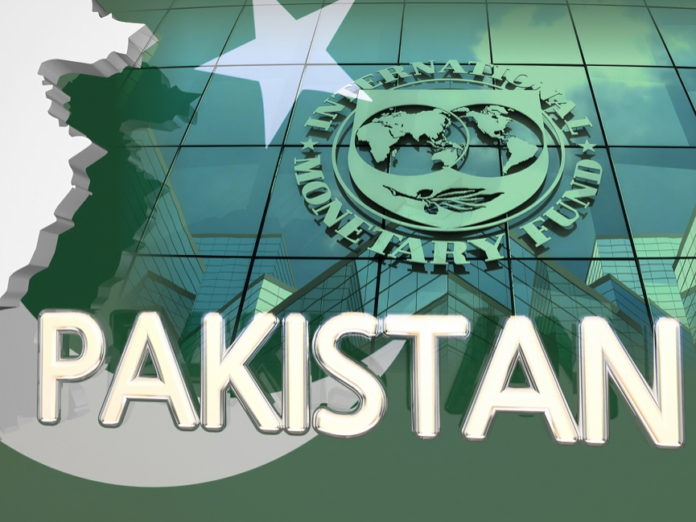Pakistan has accepted the International Monetary Fund (IMF) condition to halt the establishment of any new Special Economic Zones (SEZs) or export processing zones (EPZs). This condition stipulates that Pakistan will not establish any new Special Economic Zones (SEZs) or export processing zones (EPZs), and the tax incentives currently enjoyed by the existing zones will not be extended once they expire. The acceptance of this condition marks a critical shift in the country’s industrial and economic policy, and it will have far-reaching implications for the government’s development plans.

One of the immediate effects of this decision is the shelving of plans to establish a new export processing zone on the land previously owned by Pakistan Steel Mills (PSM), a project that was expected to rejuvenate industrial activity in the region. The IMF’s condition is seen as a major obstacle to this initiative, which was part of broader efforts to promote industrial expansion through Special Economic Zones. These zones are designed to offer businesses tax breaks and infrastructure support to encourage investment and economic growth.
Sources within the government have confirmed that this condition will apply across both federal and provincial levels, sparking opposition from Khyber-Pakhtunkhwa, which has refused to comply with the restriction on new Special Economic Zones. The provincial government argues that backward regions like Khyber-Pakhtunkhwa rely on these zones to attract industries with affordable land and tax benefits, which are essential for economic development.
The IMF’s influence on Pakistan’s industrial policies through this condition is viewed by many as a sign of how deeply the global lender has shaped the country’s economic future. Critics argue that while the IMF’s measures may appear fiscally responsible, they carry severe socio-economic costs, particularly in a country struggling with high unemployment and rising poverty. Pakistan’s unemployment rate has risen to 10.3%, while poverty levels have surged to 40%, according to recent reports.
Despite the acceptance of the IMF’s condition and several other stringent measures—such as the imposition of Rs1.8 trillion in new taxes and a staggering 51% hike in electricity prices—Pakistan has yet to secure a final approval date for the $7 billion IMF bailout package. Talks for the EFF began in May, culminating in a staff-level agreement in July, but two months later, there is still no clarity on when the IMF’s executive board will meet to finalize the deal.

The ban on new Special Economic Zones is particularly concerning given Pakistan’s ambitious plans under the China-Pakistan Economic Corridor (CPEC). Pakistan had planned to develop nine SEZs as part of CPEC, with two already underway—the Rashakai SEZ in Khyber-Pakhtunkhwa and the Allama Iqbal Industrial City in Faisalabad. Other zones, such as the Dhabeji SEZ in Sindh and the Bostan SEZ in Balochistan, are in various stages of planning, but their future now hangs in the balance due to the IMF’s condition.
Additionally, the government’s strategy to attract Chinese industries to relocate to Pakistan under the second phase of CPEC is also at risk. The IMF’s restriction on new Special Economic Zones is seen by some analysts as an attempt to weaken Pakistan’s economic ties with China. Despite this, Pakistan remains committed to attracting Chinese businesses to invest in the country’s priority sectors, including agriculture, IT, energy, minerals, and tourism.
The Special Investment Facilitation Council (SIFC) has continued to promote investment opportunities in Special Economic Zones to visiting Chinese delegations. Recently, a high-level Chinese business delegation, including representatives from Xinjiang Iron Brothers Co Ltd and other prominent firms, visited Pakistan and expressed interest in industrial investment. The SIFC briefed the delegation on the policy measures being undertaken to improve the investment climate and highlighted opportunities in sectors such as agriculture and minerals.
However, the IMF’s condition to halt new SEZs could undermine these efforts. Muzammil Aslam, Adviser on Finance to the Chief Minister of Khyber-Pakhtunkhwa, pointed out that every province, much like states in developed countries, has unique tax and infrastructure policies, and they should be allowed to compete for industrial investment. He criticized the IMF’s one-size-fits-all approach, stating, “The IMF cannot dictate on this front.”
The dominance of Pakistan’s finance ministry in negotiations with the IMF, at the expense of the planning ministry, has led to the acceptance of conditions that could stifle long-term industrial growth. Historically, the Planning Commission played a critical role in IMF talks, but its sidelining in recent negotiations has resulted in the acceptance of policies that may seem fiscally sound but come with significant socio-economic costs.
Under the existing Special Economic Zones Act, developers, co-developers, and enterprises within SEZs are entitled to various incentives, including a 10-year exemption from income tax and one-time exemptions from customs duties on imported capital goods. These incentives have played a crucial role in attracting investment to Pakistan’s SEZs, with the government providing Rs7 billion worth of exemptions in the last fiscal year alone.
Pakistan’s industrial policy, especially regarding SEZs, is at a critical juncture. With multiple SEZ projects across the country, such as the ICT Model Industrial Zone in Islamabad, Mirpur Industrial Zone, and Moqpondass SEZ, now in jeopardy, the government faces immense pressure to find alternative strategies to boost industrial growth and investment.


